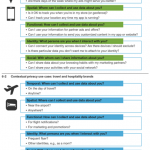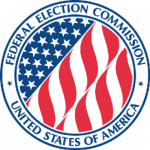Why Telling John McCain To Beat Cancer Feeds A Dangerous GOP Narrative
It’s always hard to find the right thing to say when someone shares frightening health news. The announcement of Senator John McCain’s brain cancer diagnosis this week showed that even the world’s greatest speakers and thinkers can get it wrong.
I’m sure that Barack Obama meant nothing but the best when he tweeted:
John McCain is an American hero & one of the bravest fighters I’ve ever known. Cancer doesn’t know what it’s up against. Give it hell, John.
— Barack Obama (@BarackObama) July 20, 2017
Obama wasn’t alone: Joe Biden wrote, “You will win this fight, John,” while Hillary Clinton wrote, “John McCain is as tough as they come.”
But positioning cancer as a battle to be won, rather than as an illness, sets up a logical implication that those who die didn’t try hard enough–and that’s a real disservice to people who lose their lives to this terrible disease.
It also has real political implications. Democrats expressing their support for McCain in this way demonstrated implicit support for right-wing narratives of “personal responsibility” that are driving the GOP’s efforts to take health care away from millions of Americans.
Before summer’s out, we’ll repeal/replace Obamacare w/ system based on personal responsibility, free-market competition & state-based reform pic.twitter.com/JzCyxX9kJb
— Mike Pence (@mike_pence) June 24, 2017
For me, as for so many other Americans, this rhetoric cuts deep.
My father died of lung cancer three years ago, at the age of 69. He was unlucky enough to develop the disease, despite being a lifelong nonsmoker. Dad’s physical and moral strength isn’t even debatable–but his lung cancer, like McCain’s brain tumor, had a poor prognosis from the time of diagnosis. Like many cancer patients, my dad was eager to explore options for his treatment. He endured chemo for many months. He participated as a subject in drug trials that may have helped to extend his life. He worked for a medical school, which meant that he had good health insurance and exceptional access to innovative and talented practitioners.
But recovering from his cancer was, sadly, never an option, no matter how many times people said to him: You can beat this! It’s a statement that is meant to sound encouraging, but is really a way for the speaker to distance themselves from the patient. “You can beat this,” means, “This is a problem that you can take care of yourself.” In other words, defeating your cancer is your personal responsibility.
Paul Ryan spearheaded the concept of personal responsibility in the context of health care in 2009, when he wrote in his Patient’s Choice Act that a “large percentage of heart disease, stroke, and type 2 diabetes, as well as many cancers, could be prevented if Americans would stop smoking, start eating better, and start exercising.” Health policy should be built, he argued then (and now) to reward people who look after their health—to disincentivize illness, as if people are eager to pursue bad health.
Politicians like Mike Pence celebrate a future in which “personal responsibility” drives access to health care for all Americans. While working hard to save money for America’s richest white men, Trumpcare overlooks all of the factors beyond “personal responsibility” that lead to ill health—systemic inequality, poverty, and perhaps most of all, just terrible bad luck. John McCain’s age alone made him four times as likely to develop cancer than men who are 20 years younger than he is. Would his age be regarded as irresponsible?
If Democrats believe that people should have equal access to health care regardless of extenuating circumstances, they must stop talking about cancer in a way that yokes survival to strength and virtue, and death to weakness or moral failing. Under the current health care system, people who are wealthy are likely to have better treatment outcomes because they can pay for better treatment. We would never tell someone who was recently diagnosed with a terminal illness, “I know you can beat this, because you’re really rich!” though it’s more accurate than telling them they’ll defeat a disease by being tough.
So, what should you say when someone is diagnosed with cancer? Tell them that you’re sorry. Tell them that you love them. Tell them that you’ll drive them to their appointments, help them fundraise for their treatment, or help look after their children or pets. Tell them that you’ll keep fighting tooth and nail to make our elected representatives preserve Americans’ health insurance.
But don’t speak to them as if you’re on their side in a wrestling match with the Grim Reaper. That’s plain sick.
Jean Hannah Edelstein is a freelance journalist who lives in Brooklyn and is writing a book about cancer and genetics.
Positioning cancer as a “battle” demonstrates implicit support for “personal responsibility” narratives that are driving GOP efforts to take health care away.
It’s always hard to find the right thing to say when someone shares frightening health news. The announcement of Senator John McCain’s brain cancer diagnosis this week showed that even the world’s greatest speakers and thinkers can get it wrong.
Fast Company , Read Full Story
(7)













